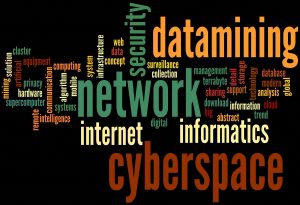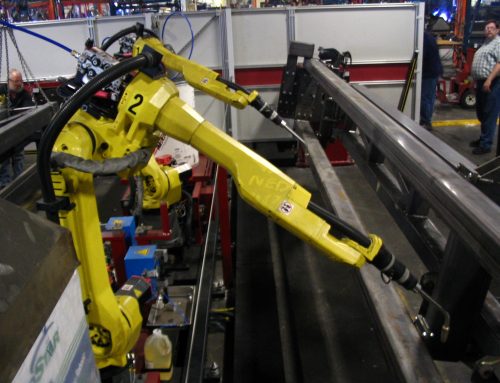 The Internet of Things (IoT) is a term popping up with greater frequency in consumer technology. From tracking daily activity with a FitBit to remotely controlling home security and utilities, the Internet of Things connects real products to the Internet, seeking to improve quality of life while saving time and money. The IoT works on the business end, too, transforming business processes and creating better products through the analysis of data. McKinsey & Company has been watching this trend for some years, and recently created a 144-page report detailing the advantages of the IoT. They estimate that the Internet of Things has an economic impact today of up to $11 trillion by 2025. That is an enormous sum for only 10 years from now. Can the Internet of Things live up to the hype? Most of those who analyze the situation say yes. The opportunities range from the valuable information the data provides to a new way of thinking and applying security measures.
The Internet of Things (IoT) is a term popping up with greater frequency in consumer technology. From tracking daily activity with a FitBit to remotely controlling home security and utilities, the Internet of Things connects real products to the Internet, seeking to improve quality of life while saving time and money. The IoT works on the business end, too, transforming business processes and creating better products through the analysis of data. McKinsey & Company has been watching this trend for some years, and recently created a 144-page report detailing the advantages of the IoT. They estimate that the Internet of Things has an economic impact today of up to $11 trillion by 2025. That is an enormous sum for only 10 years from now. Can the Internet of Things live up to the hype? Most of those who analyze the situation say yes. The opportunities range from the valuable information the data provides to a new way of thinking and applying security measures.
Data is King
In the information age, knowledge is power. One of the greatest areas for potential in the Internet of Things is data, and therefore, information. The IoT creates reams of data – most of it unmined and therefore unused. Wearable fitness devices provide health data while controlling utilities remotely can track and predict energy resource usage. Insight into data can allow companies to create and improve products. Silicon Valley firms are developing software and online cloud services to coordinate smart devices to do just that. For example, Salesforce, the well-known customer relationship software, has created IoT Cloud, a service designed to monitor events relayed by smart devices. Other firms are creating chips that will pass information to cloud-based services. More opportunities for the usage and management of data include storage and traffic.
Nimble tech companies aren’t the only ones to recognize the opportunity. Bosch, the German manufacturer of appliances, is putting significant investment into the development of smart products. They have created a similar product to the IoT Cloud called the IoT Suite, a software platform for “smart factories” that will allow them to capture and utilize data with respect to manufacturing. General Electric and SAP SE are also working on similar products.
Security Needs Will Rise
As more personal information finds its way to the internet, threats from hackers will rise. Not only for data that exists on a cloud platform, but for data that gets passed back and forth among devices. Network security analysts say it is a question of when attacks will happen, not IF. The IoT spans not just information technology (IT), but operational technology (OT). Most smart devices reside on the OT platform, and their information lives within the realm of information technology. As smart devices expose operational technology to the Internet, the probability of attack will rise. Therefore, companies who provide solutions for an open platform that considers both IT and OT security needs possess the potential for creating the very foundation on which a successful IoT environment will rest. The technology for smart devices exists and we are now learning to leverage the data. The challenge will be to protect that information.
An on-going and threat-centric approach to security will be important. Focusing on threats must take center stage and not be an underlying by-product. It will be important not only to identify and stop threats, but also to understand them. The advantage of the IoT is that this information can then be shared and applied across platforms and devices.
Some see the Internet of Things as a revolution:
“…the Internet of Things (IoT) is not merely about creating savings within current industry models. It’s about upending old models entirely, creating new services and new products. There is no one sector where the Internet of Things is making the biggest impact; it will disrupt every industry imaginable, including agriculture, energy, security, disaster management, and healthcare, just to name a few…It’s going to create disruption and opportunity in every imaginable field, and it’s entirely up to you whether you’re going to be one of the disrupted or the disruptors. Because this is going to happen. It’s time to learn about it now.” Daniel Burrus, Burrus Research, in a Wired magazine article, found here.
Only time will tell if he is right. But with companies like Bosch jumping in, and Cisco weighing on the security implications, the Internet of Things is worth keeping on your radar.





